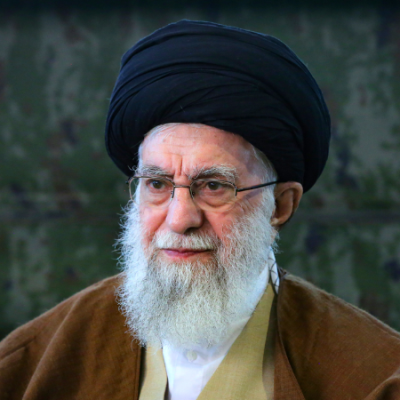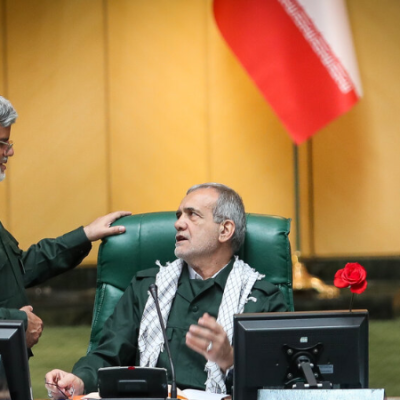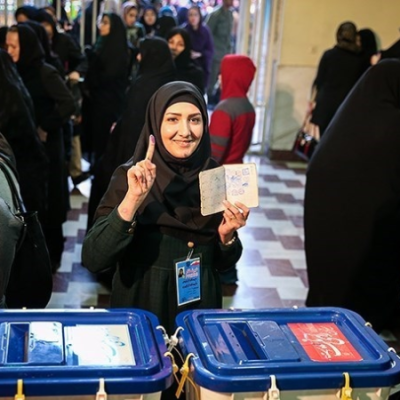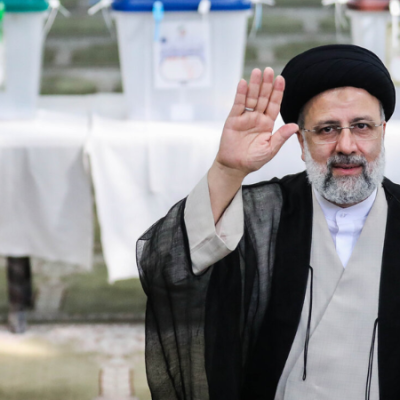Connecting the Dots: Understanding Iran’s Complex Impact on Global Affairs
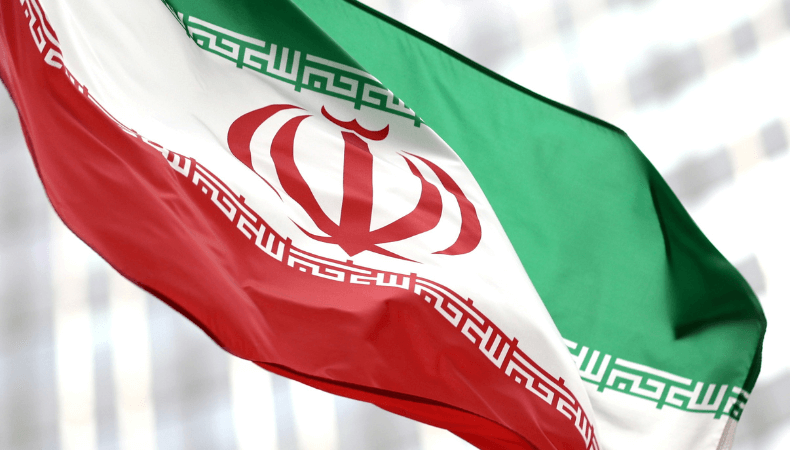
In the intricate tapestry of international relations, few countries have been able to weave such a complex web of connections as Iran. Over recent years, its links with groups like the Muslim Brotherhood, Al-Qaeda, and Hamas have raised eyebrows and stirred heated debates. But what exactly is Iran’s role in these partnerships? And more importantly, how does it affect world affairs?
Recent attacks by Iran-backed militant groups in the Middle East have significantly heightened the risk of a broader regional conflict extending beyond the Gaza Strip. Following Israel’s declaration of war against Hamas on Oct. 7, groups with affiliations to Iran have launched missiles across the Lebanese border, targeted bases in Iraq and Syria where U.S. service members are stationed, and attacked commercial vessels in the Red Sea. The conflict escalated further with the recent attack on a U.S. military outpost in Jordan on Sunday, resulting in the tragic loss of three troops and leaving dozens wounded. This series of events underscores the concerning activities of Iran-backed militant groups and their potential impact on regional stability.
We explore this intriguing puzzle with a focus on clarity and impartiality, seeking to uncover the truth. We will delve into Iran’s alignment with these organisations and analyse their wide-ranging impact on important global issues like mass migration patterns and economic and infrastructural transformations.
Beyond political maneuvering lies another dimension – one that often goes unnoticed but carries profound consequences: humanitarian crises borne out of these alliances. Brace yourself for an eye-opening exploration of how Iran’s relationships intertwine with various aspects of our world – from geopolitical shifts to social upheavals.
So fasten your seatbelts because this captivating journey promises riveting revelations that will leave you pondering long after you’ve finished reading. Get ready to connect those dots and unlock new perspectives on the ever-evolving stage of international politics!
By connecting these dots, we unravel the impact on mass migration, the economy, infrastructure, and humanitarian crises.
Iran’s Relations with the Muslim Brotherhood: A Closer Look
Iran’s involvement with the Muslim Brotherhood, though complex, has been a significant factor in shaping regional dynamics. By examining historical ties and current interactions, we seek to shed light on the nature of this relationship and its implications.
Since the 1979 Islamic Revolution, the relationship between Iran and the Muslim Brotherhood has been evolving, marked by ideological affinities and historical ties despite doctrinal differences. The article explores three key affinities: the advocacy for Islamic unity, the concept of the Islamic Caliphate, and shared expansionist ambitions. Both Iran and the Muslim Brotherhood actively promote global relations and the unification of the Islamic nation. The piece underscores the significant impact of Iran’s Islamic Revolution on various Islamic movements, including the Muslim Brotherhood, and delves into Iran’s expansionist goals, particularly within the context of the “Islamic Revolution.” The intricate interplay of these affinities contributes to the complex dynamics in the Middle East, eliciting concerns among neighboring countries.
Al-Qaeda and Iran: Untangling the Web of Connections
While opinions on the extent of Iran’s involvement with Al-Qaeda may differ, it’s crucial to delve into the evidence and explore the nuanced connections.
Iran has been increasing its connection with this terrorist organization too, recently it was identified as a significant transit point for illegal charcoal exports from Somalia, benefitting an Al-Qaeda-linked militant group. The United Nations has banned Somali charcoal imports since 2012 to cut off revenue sources for Al-Shabaab, which imposes taxes on charcoal production in areas it controls. The report deems Iran a “weak link” in implementing the UN’s charcoal ban, with shipments falsely labeled as “Product of Iran.” The charcoal is then sent to various destinations, including the United Arab Emirates and Oman, generating millions for Al-Shabaab. The report attributes this transit shift to tighter customs procedures in Oman, making Iran a crucial link in the illicit trade.
Keep Reading
Hamas and Iran: Navigating a Controversial Alliance
The alliance between Iran and Hamas has often been controversial. By dissecting the layers of this relationship, we aim to elucidate the motivations behind their collaboration and the impact it has on the broader geopolitical landscape.
Hamas is designated as a terrorist organization by several countries, including the United States, the European Union, Israel, and others. Iran has been a consistent supporter of Hamas, both publicly in terms of ideological alignment against Israel and through financial and logistical aid, including military support. The relationship is part of Iran’s broader foreign policy in the Middle East, contributing to the so-called “Axis of Resistance” against Israel. This support has led to accusations linking Iran to specific actions, such as the October 7 attack, although the Iranian government has consistently denied direct involvement.
Houthi group and Iran:
The Houthi rebel group, officially known as Ansar Allah or Supporters of God, emerged in the 1990s with backing from Iran. In 2014, they seized Yemen’s capital, Sanaa, overthrowing the Saudi-backed government. The conflict escalated in 2015 when a Saudi-led coalition sought to restore Yemen’s internationally recognized government, resulting in a prolonged and devastating conflict that has claimed over 150,000 lives and triggered one of the world’s worst humanitarian crises. In December, the Houthis began targeting commercial ships in the Red Sea, prompting the U.S. to issue an ultimatum. When ignored, the Pentagon launched attacks on Houthi sites involved in missile launches. In January, the Biden administration designated the Houthis as a “specially designated global terrorist” group, citing their attacks on commercial shipping in the Red Sea. This move underlines the intricate and contentious connection between the Houthis and Iran.
Impact on Mass Migration: Understanding the Ripple Effect
One of the consequences of these affiliations is the impact on mass migration.
Iran has been facing a significant increase in migration, with both elite individuals and poorer segments leaving the country. Poor economic conditions, lack of job opportunities, and low wages are driving factors for the migration of workers. The desire to migrate is particularly high among the youth. Iran’s economic struggles have led to a surge in migration, with the country witnessing the world’s fastest growth in migration rate between 2020 and 2021. The lower social class is experiencing an “uncontrolled mass emigration” phenomenon, exacerbated by economic challenges and political suppression.
The Iranian authorities are trying to prevent skilled professionals, especially healthcare workers, from leaving, fearing the collapse of essential sectors. However, the denial of this migration phenomenon is seen as a strategy to avoid political reforms amid internal challenges and discontent.
Humanitarian Crisis: The Unseen Ramifications
Amidst Iran’s connections with various terrorist groups, ongoing activities that involve civilian casualties in the U.S., support for Sudan, proxy warfare, and other tactics, the country’s image is rapidly diminishing. Already burdened by sanctions, Iran finds itself under the scrutiny of global powers. The civilian population bears the brunt of these geopolitical maneuvers, grappling with increasing difficulties and a deteriorating humanitarian situation. In this summary, we shed light on the unseen ramifications of Iran’s associations, emphasizing the profound humanitarian crisis unfolding within the nation.
In conclusion, our exploration of Iran’s role in global affairs is not an attempt to take a side but to provide a nuanced understanding. By connecting the dots and examining the impact on mass migration, the economy, infrastructure, and humanitarian crises, we hope to contribute to a more informed discourse.



